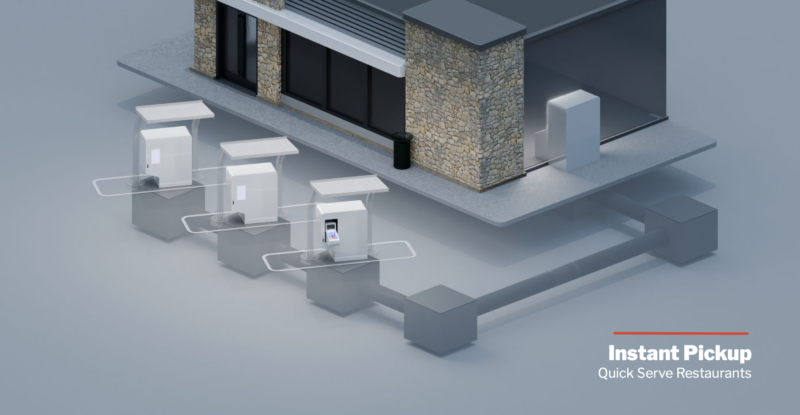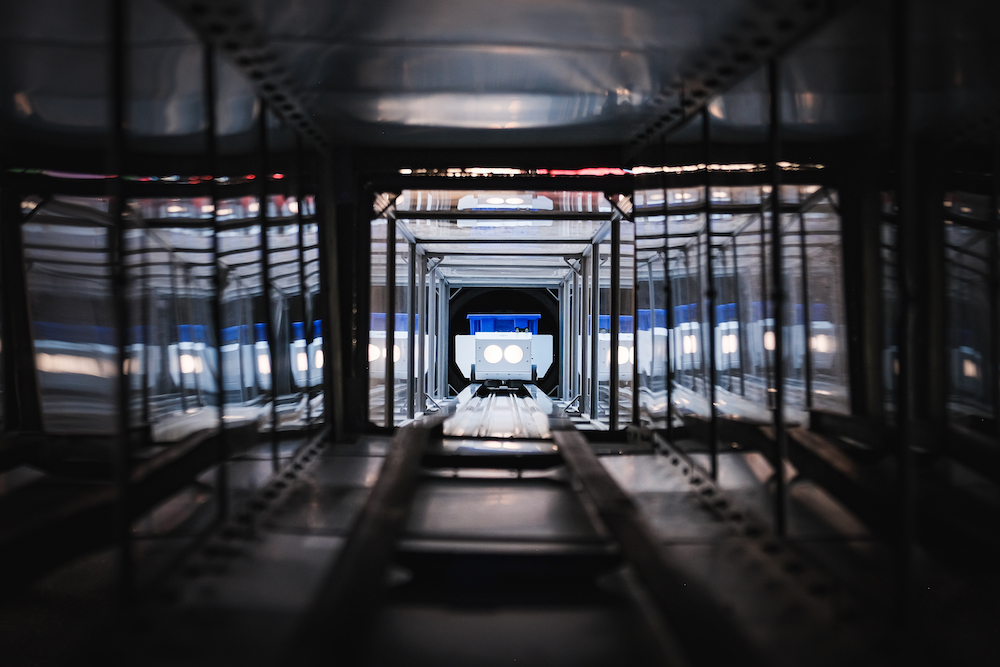Pipedream CEO Garrett McCurrach’s ultimate vision is a society in which consumers can order items and have them delivered in under 10 minutes, for less than $1, and with the ability to instantly return them. To have commerce move like water. He calls the approach hyperlogistics. How will this work? In part through below-ground tubes, linear tracks, robot carts, and above-ground delivery points. Does it sound like something out of Ray Bradbury? Sort of. Is he succeeding in persuading people to buy into his vision? Yes. He just raised $13 million in growth capital. That will pay for a lot of tubes.
Pipedream, a tech startup out of Austin, has already shown this can work, through a project it built last year in Peachtree Corners, a planned community in the suburbs of Atlanta. It built a 0.7 mile-long network that delivers goods from a retail store to the interior of an office building. Pipedream has video on its site where you can see a robot hustling along underground like the gopher in Caddyshack. It’s slick.

The company has a limited version of hyperlogistics already in place called Instant Pickup. It’s designed for quick-service restaurants. Employees load orders into a back-of-house temperature-controlled storage system. When a customer pulls up to a kiosk in the parking lot, the order is delivered in less than 15 seconds. Pipedream says it can install the system in one to three weeks, offering to work at night to avoid disruption, and that the payback timeframe is six to 12 months. Wendy’s has signed on to serve as the pilot. A launch date hasn’t been announced.
McCurrach wrote on LinkedIn that the company has more than 100 Instant Pickup preorders and the company will use the funds to fulfill them. He is also keeping an eye on the goal of building a large-scale middle-mile network in an as-yet-unnamed city. He says Pipedream plans to break ground on construction later in the year. The early favorite seems to be Phoenix.
If Pipedream can pull hyperlogistics off the payoff could be immense. The global market for delivery robots is expected to hit a compound annual growth rate of 32 percent, expanding from around $300 million in 2023 to more than $2 billion by 2030, according to Fortune Business Insights.
The fundraising round was led by Starship Ventures and included participation from Cortado Ventures and Myelin Ventures.


